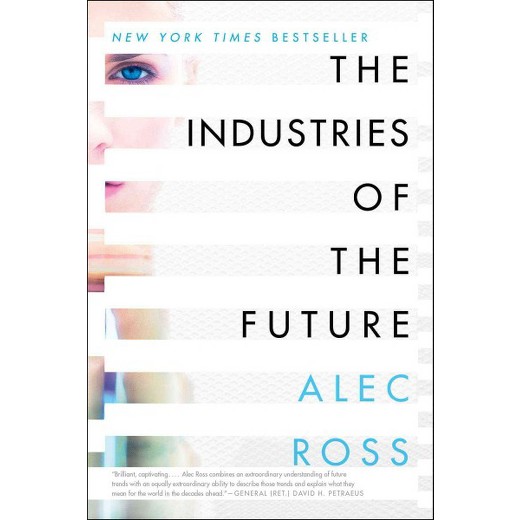The Industries of the Future by Alex Ross provides a helpful view of the future standing on the deck of the ship sailing towards what’s next. His book is a great resources for educators who are constantly trying to answer the questions “What’s next?” and “How do we best equip our kids to lead the way there?” I approach this book and it’s predictions from a biblical worldview and notice how many ethical dilemmas are right in front of us. I am eerily reminded of Ian’s quote in Jurassic Park, “Your scientists were so preoccupied with whether or not they could, they didn’t stop to think if they should.” Are we training our students to think? Are we equipping them with the ability to discern wisdom and prudence as different opportunities present themselves? Easier isn’t always better. “Best” isn’t always wise.
I’m grateful for the perspective that Ross holds throughout as he poses some of those questions asking what is best in light of the recognition that we are talking about human beings.
I highlighted several things while reading and have posted those notes below…
- “Adapt or perish, now as ever, is nature’s inexorable imperative.” H.G. Wells, A Short History of the World (1922) p. 1
- Innovation brings both promise and peril. The same forces that are unleashing unparalleled advances in wealth and welfare may also allow a hacker to steal your identity or hack your home. A computer that can speed up analysis of legal documents can also shrink the number of lawyers in the workforce. Social networks can open doors to form new connections or create new forms of social anxiety. The digitization of payments can facilitate commerce or allow for new forms of fraud. p. 6
- Parenting is the most important job that a person can have, and our children will grow up to inherit a world that looks much different from our own. p. 14
- Belief space refers to a mathematical framework that allows us to model a given environment statistically and develop probabilistic outcomes. It is basically the application of algorithms to make sense of new or messy contexts. p. 23
- Within the robotics community, the future of technology is wrapped up in the concept of singularity, the theoretical point in time when artificial intelligence will match or surpass human intelligence. p. 26
- With the pressure on insurance companies and health care providers to lower costs, I worry that there will be market forces pushing robots into the operating room at times when a patient is better served by a human being. Robots can eventually improve outcomes in health care, but it would be a human failing if we rush to Doctor Robot due to financial considerations alone. p. 33
- Is there an algorithm for trust? New ways to exchange are forcing a rewrite of the compact between corporation, citizen, and government. p. 76
- As blockchain technology takes off, its impact will be like that of the sharing economy and other forces of digital disintermediation: it will force a rewrite of the compact between corporation, citizen, and government. It is bringing frontier economies onto the global playing field while destroying middlemen and traditional authorities. p. 120
- The world has left the Cold War behind only to enter into a Code War. p. 121
- Land was the raw material of the agricultural age. Iron was the raw material of the industrial age. Data is the raw material of the information age. p. 152
- The growing economic diversity and increasing pace of change means that investors and people in global business will have to be as mobile and able to work across cultures as people newly entering the workforce. The same advice that applies to the next generation applies to today’s investors if they want to be a part of the trillions of dollars of wealth creation that will come from the industries of the future. The innovation and company creation that is just now beginning to take place in robotics, genomics, cyber, big date, and new fields made possible by the code-ification of money, markets, and trust will spring from alpha cities around the world, but they will also come from places that most business leaders have never visited, like Estonia. p. 248

